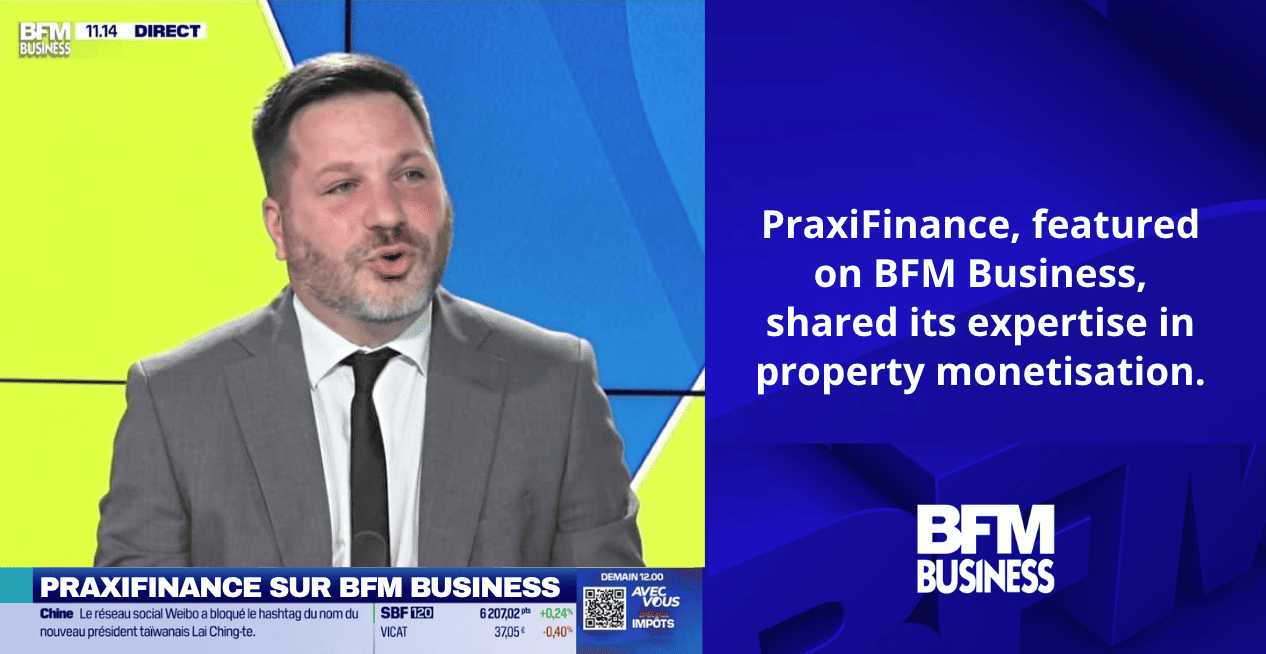A mortgage-backed loan lets you raise capital from property you already own in France, without selling it. This simulator calculates an indicative monthly repayment, eligible amount based on loan-to-value (LTV), and standard fees over 10, 12, 15, 20 or 25 years. If you need funding for investment, renovation, consolidation, inheritance settlement or business liquidity, this structure provides flexible, notary-supervised financing while you retain full ownership.
How a mortgage-backed loan works
The property serves as collateral for the loan, enabling higher amounts and longer durations than consumer credit. You can choose either:
- an amortising structure with monthly principal and interest instalments, or
- an interest-only formula (in fine), where interest is paid monthly and the principal repaid at maturity.
Each loan is authenticated by a French notary, registered in the national land registry and governed by mortgage law. Ownership remains yours throughout. Because this is credit, interest applies and repayment capacity must be demonstrated, but all funds flow through notarial escrow for full traceability.
For details on the legal safeguards, see safe equity release in France and equity-release regulations in France.
Using the simulator
Enter:
- Property value (market estimate),
- Department code (to calibrate local LTV ratio),
- Desired cash amount, and
- Term (10 – 25 years).
The simulator displays your indicative monthly repayment, total fees and key lender parameters. These are preliminary figures; a PraxiFinance adviser confirms them after independent valuation, compliance checks and notarial review.
Eligibility and property criteria
To qualify, the property must:
- be located in France;
- have a clear, registered title;
- show valuation sufficient for the requested loan;
- and, if applicable, list any existing mortgage for repayment or refinance.
Non-residents are eligible provided they can demonstrate repayment capacity or a defined exit strategy (sale, maturity event or inheritance distribution).
Where income is irregular, the notary may structure an interest-only period to smooth cash flow.

Indicative costs, interest and fees
The simulator includes standard notarial, valuation and service fees plus a model interest rate for guidance. Final pricing depends on property value, LTV, borrower profile and duration. All charges and rates appear in the draft deed before signature. Interest is paid monthly; choosing a longer term lowers monthly cost but increases total interest over the loan’s life.
Example scenario
A property valued at €1 000 000 with a 50 % LTV allows €500 000 gross. Over 20 years at a fixed 5.65 % rate, the amortising monthly payment is roughly €3 500 excluding insurance. Fees (≈ 7 – 9 %) are either capitalised in the loan or deducted at completion. The notary registers the mortgage and releases funds via escrow within days of signature.
Advantages of property-secured credit
- Preserves full ownership.
- Unlocks significant liquidity compared with consumer loans.
- Offers predictable monthly cost and transparent interest.
- Allows early repayment or refinancing at any time.
- Provides bilingual documentation and notarial protection.
Because this is a loan, not a sale, you remain free to sell later; the notary simply repays the balance from sale proceeds. These features make it complementary to other solutions described on equity release in France.
Risks and mitigants
The primary risk is affordability. The simulator helps gauge a sustainable monthly figure before engagement. PraxiFinance structures conservative LTV and terms, balancing liquidity needs with long-term security. The notary validates every clause, ensuring transparency and enforceability.
If income fluctuates, an interest-only phase or longer term can ease cash flow. For owners requiring cash but preferring no monthly payments, alternatives such as the lifetime mortgage in France or sale with deferred price simulator may fit better.
Why PraxiFinance
PraxiFinance has specialised in property-secured financing since 1990, serving residents and expatriates across France. The firm blends bank-grade financial modelling with notarial execution and bilingual support. Its mission is to secure optimal loan size, rate and duration while preserving ownership and estate integrity.
Typical timeline
1 – File opening and eligibility (48 hours).
2 – Independent valuation and legal audit (≈ 1 week).
3 – Offer drafting and bilingual summary (1 week).
4 – Notarial deed signature (2 – 3 weeks).
5 – Mortgage registration and fund release (24 h).
Average completion : 8 – 10 weeks, identical to the schedules on how equity release works in France.
FAQ – Mortgage-Backed Loan in France
Can non-residents borrow against a French property?
Yes, provided the asset is located in France and repayment capacity or a clear exit is documented.
How is LTV determined?
By market depth and property liquidity; prime departments permit higher ratios than peripheral zones.
Are simulator results binding?
No. They are indicative and confirmed after valuation, compliance checks and notarial drafting.
Can I repay early?
Yes, with standard early-repayment penalties specified in the notarial deed.
How quickly can funds be released?
Typically 8 – 10 weeks from file opening, after notarial drafting and registration.



.png)


.svg)






